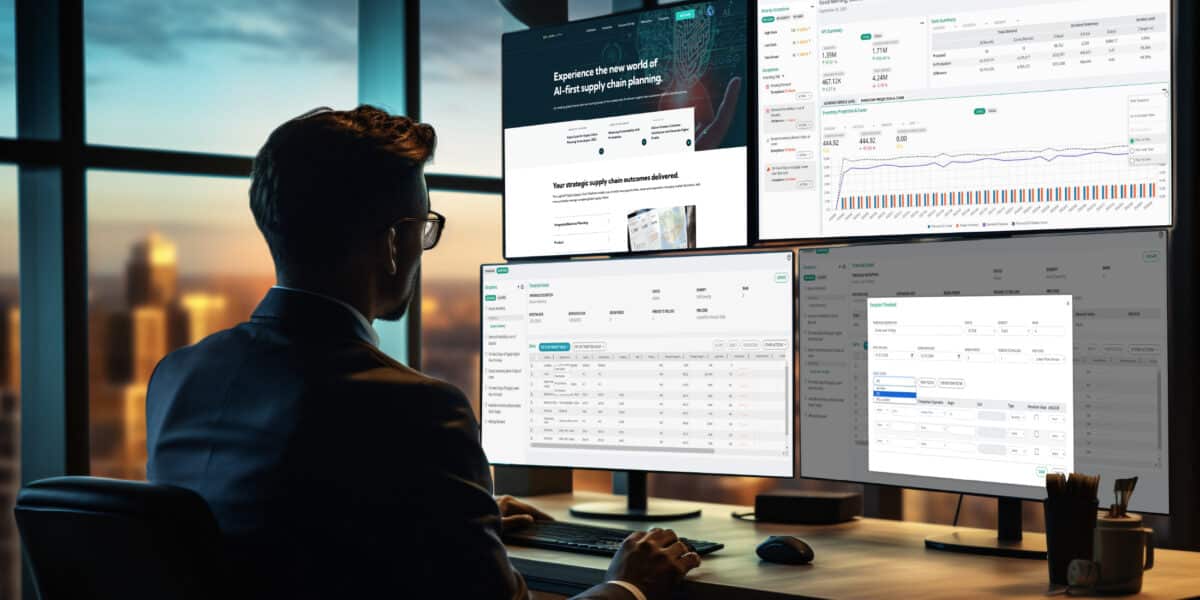
 Over the last few years I have heard a reoccurring theme from many supply chain professionals, “there is a war for talent being waged.” Nowhere is this more apparent than in the area of demand and supply chain planning. One of the key challenges facing organizations today is the changing demographic of candidates for planners. As with every generation in the workforce, companies have had to adapt and thankfully there are steps that can make your company more attractive to the best talent; talent who can make a substantial impact on both company profitability and customer service.
Over the last few years I have heard a reoccurring theme from many supply chain professionals, “there is a war for talent being waged.” Nowhere is this more apparent than in the area of demand and supply chain planning. One of the key challenges facing organizations today is the changing demographic of candidates for planners. As with every generation in the workforce, companies have had to adapt and thankfully there are steps that can make your company more attractive to the best talent; talent who can make a substantial impact on both company profitability and customer service.
The global supply chain is a $25+ trillion per year industry. An industry that is quickly growing and becoming more complicated. Between 2010 and 2020, the number of available jobs in supply chain is predicted to grow by more than 25 percent. Currently, there is only one highly qualified candidate for every six job openings. In a few years, that could be as high as one candidate for every nine job openings. Adding to the challenge, there is currently a shortage of nearly 50% in middle management positions. At the same time, the number of openings for analysts and planners are growing. If you are lucky to find the right person and bring them on board an even more alarming statistic will confront you: today, an employee is likely to only stay just over 18 months. This is just long enough to start providing a significant contribution before they move on.
There are a number of reasons for the ever growing shortage of supply chain professionals. First supply chains have become more global and complex requiring a more in-depth blend of business experience and analytic skills to be effective. Building this experience and skills takes time. The demand for people with these highly sought after skills is high and growing faster than there is time to nurture current employees and future qualified candidates.
One reason for the acute shortage of supply chain planners is the dramatic increase in the depth and breadth of skills required to be effective. Analytical abilities continue to be paramount but add to that the need to have well developed skills in negotiation and communication as planning processes become more collaborative. To be able to make recommendations and decisions that are beneficial to the company, planners also need to have a deep knowledge of supply chain operations, products, customers, partners, and their business goals and strategic vision. This combination of experience and skills are difficult to find and retain.
The fact that the field of supply chain management still takes a back seat to other fields like engineering, marketing, finance, information technology and sales is one in a line of underlying reason for the shortage. This perception is starting to change as C-Level executives become more aware of the criticality of the supply chain to their company’s success and elevate the importance and pay structures of their supply chain teams. College students will migrate more and more to supply chain management as the status of the profession increases and salaries become more competitive. We are seeing this shift. In fact, the recent SCM World report, Future of Supply Chain 2016, notes “There is a steady stream of CEOs or business unit presidents who have risen directly out of the supply chain function.” And, 51% of respondents said “supply chain is understood as an equally important part of business success [as much as] sales and marketing or R&D / product development.”
Finally, the changing demographics of available candidates favors those types of positions that are perceived to add visible contributions to society and to the company. Millennials now make up the largest group of workers entering the workforce. Millennials seek careers where they can make a difference and a contribution; they tend to get bored quickly and because of that change jobs more frequently. They view frequent job changes as a way to build their skill portfolio and are not content to wait for an opportunity to be offered. Instead, they will seek out the next opportunity often outside of their current employer.
As a crew member on ill-fated Apollo 13 moon mission said, “Houston, we have a problem here.” The question becomes what are we as supply chain leaders going to do about it. Beyond getting into a wage and benefit war for an ever decreasing pool of the best talent there are a few strategies that will enhance your ability to attract and retain this critical resource.



